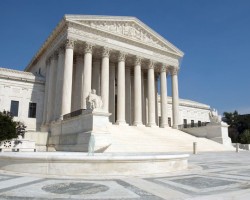
UNITED STATES COURT OF APPEALS FOR THE TENTH CIRCUIT _________________________________
MARY M. MAYOTTE,
Plaintiff – Appellant,
v.
U.S. BANK NATIONAL ASSOCIATION, As Trustee for Structured Asset Investment Loan Trust Mortgage Pass-Through Certificates, Series 2006-4; WELLS FARGO BANK N.A.; AMERICA’S SERVICING COMPANY, and All Persons or Entities Claiming any Legal or Equitable Right, Title, Estate, Lien or Interest in the Property Described in this Complaint Adverse to Plaintiff’s Title, or any Cloud upon Plaintiff’s Title Thereto; DEBRA JOHNSON, Public Trustee, Defendants – Appellees.
Buckley Sandler InfoBytes- 10th Circuit Opinion 2018.01.29 by DinSFLA on Scribd
On January 23, the U.S. Court of Appeals for the 10th Circuit reversed a District Court’s decision dismissing a borrower’s claims against a lender and mortgage loan servicer (collectively, “defendants”) under the Rooker-Feldman doctrine, which prohibits lower federal courts from reviewing state court civil judgments. Colorado maintains a unique procedure for non-judicial foreclosure. Specifically, under Rule 120 of the Colorado Rules of Civil Procedure (“Rule 120”) a trustee is required to obtain a trial court ruling that a “reasonable probability” of default exists before moving forward with a non-judicial foreclosure. According to the opinion, in 2014, the defendants initiated a non-judicial foreclosure proceeding against the borrower through the Rule 120 process. Prior to completing the sale, however, the borrower filed suit in the U.S. District Court for the District of Colorado seeking, among other things, an injunction against the sale, damages, and cancellation of the promissory note. Relying on the Rooker-Feldman doctrine, the District Court dismissed the borrower’s suit as an attempt to unwind the results of the Rule 120 proceedings. The 10th Circuit reversed this decision based on its finding that the borrower’s suit did not challenge the Rule 120 state court decision, but rather took issue with the defendant’s actions prior to the state court proceedings. In reaching this conclusion, the 10th Circuit noted that even if the borrower had filed suit after the Rule 120 judgment had been entered, unless the borrower was alleging the state court wrongfully entered the judgment, the suit would not be barred by Rooker-Feldman.
© 2010-19 FORECLOSURE FRAUD | by DinSFLA. All rights reserved.


